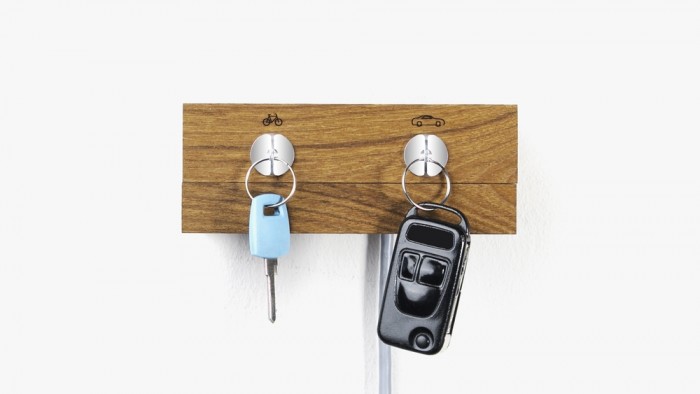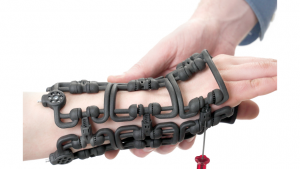
Dr Matthias Laschke from the Folkwang University of the Arts has a vision for design in the lives of humans: to peacefully disrupt our notions of convenience. In his ongoing project, “Pleasurable Troublemakers”, he focuses on persuasive technologies that address diverse topics such as sustainability, procrastination, willpower and adherence.
In his latest concept, aptly called “Keymoment”, Laschke aims to enforce a “moment of reconsidering”. The Keymoment device is a key hook for two sets of keys: one for your car and the other for your bicycle lock. The moment of reconsidering arises when you unhook your car key and the bike key also drops to the ground. This forces you to stop and think about your decision of driving and instead consider cycling. It doesn't work the other way though; if you take your bicycle key the car key remains hanging, as you have made an eco-friendly decision.
Laschke wants to create friction between the user, the device and the situation to prompt people into reflecting on what they are doing when utilising a device. These frictatious moments are based on four principles: situatedness, freedom, alternatives and meaning making.
Laschke explains that the troublemakers are positioned in the situatedness – they flourish on the intimate understanding and knowledge of a situation and habits. They are part of a story. Freedom aims to rescript moments of choice – they neither simplify nor restrict. Alternatives offer an alternative more in line with an ideal self. And finally, meaning making nudges people into the making of meaning – the friction creates reflection at least for those who do not already share the goal of the ideal self (proposed by Laschke).
Laschkes says that these “aesthetics of friction” could be met with reactance, where the user feels their freedom is taken away from them. He notes that the following principles help ease the friction of interaction: naivety – his creations aren’t smart devices and only react on your input; ambiguity – they create a simple choice for the user; and understanding – it’s easy to cheat them and transgressions are possible.





